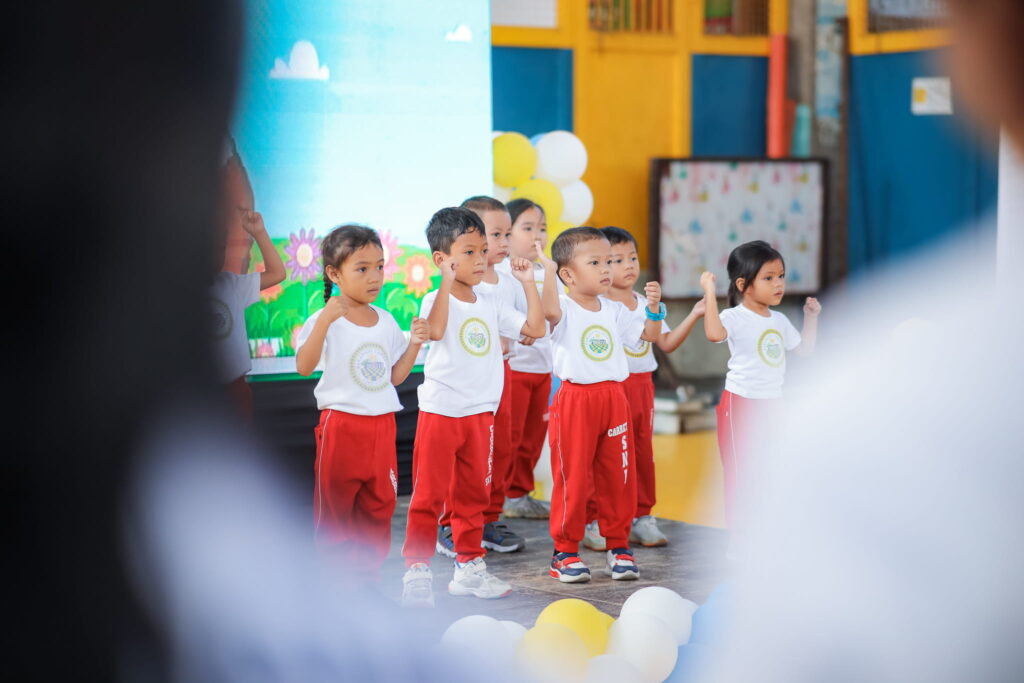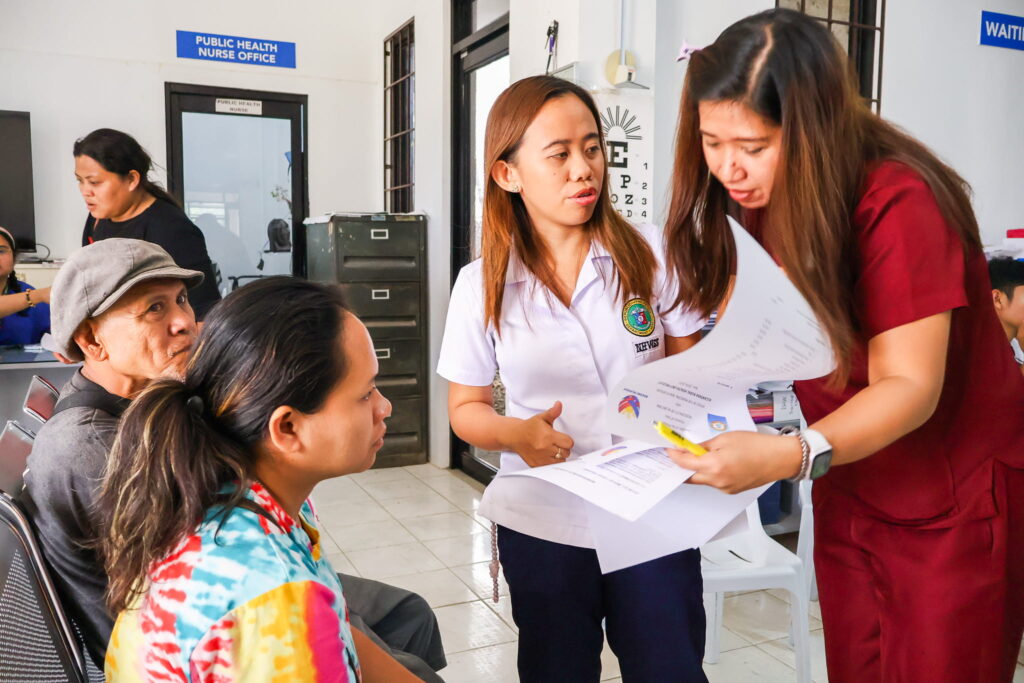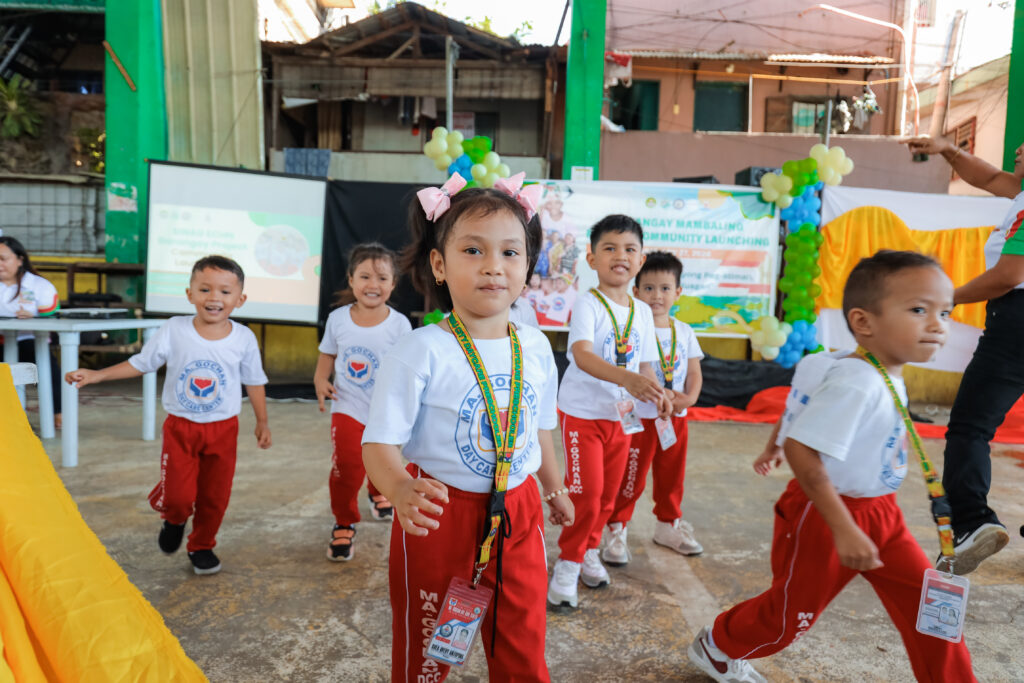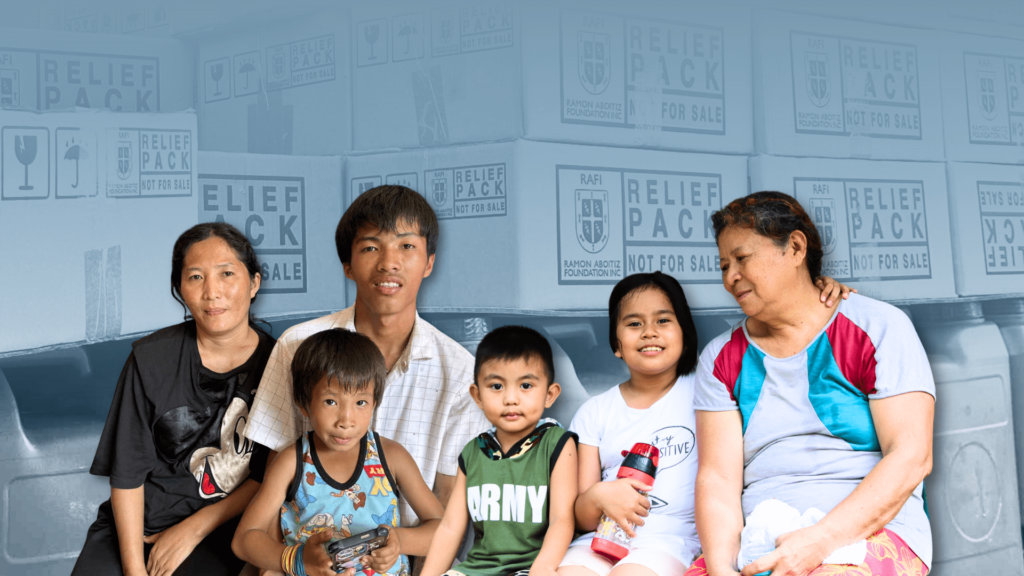
After the devastating earthquake that struck northern Cebu, the first wave of relief from the Ramon Aboitiz Foundation, Inc. (RAFI) has reached the hard-hit towns of Bogo and San Remigio, offering support to families struggling in the aftermath.
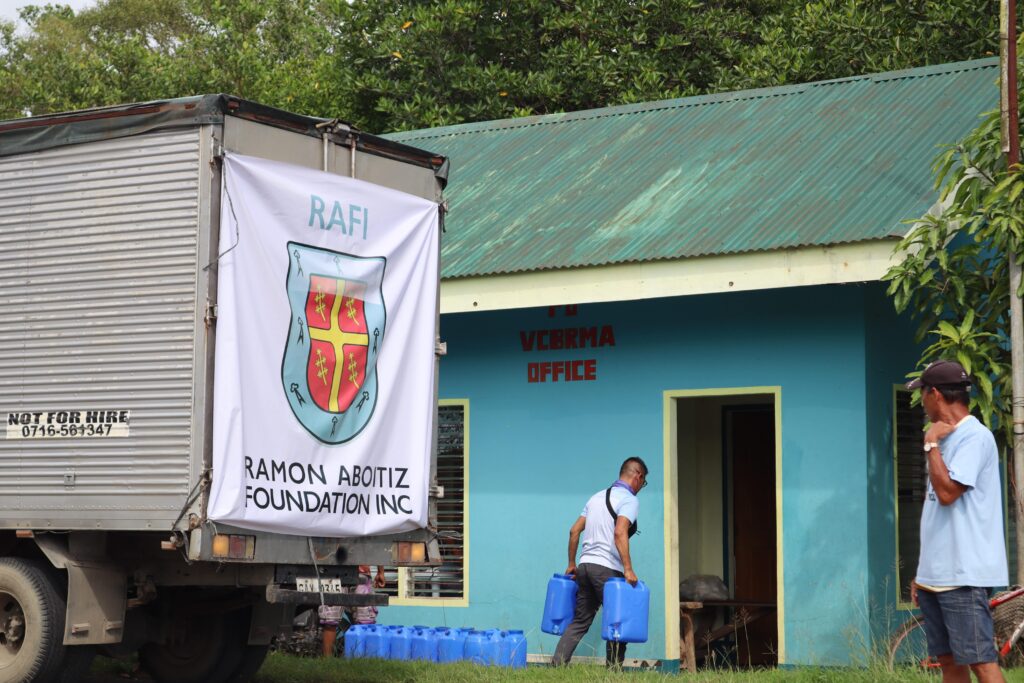
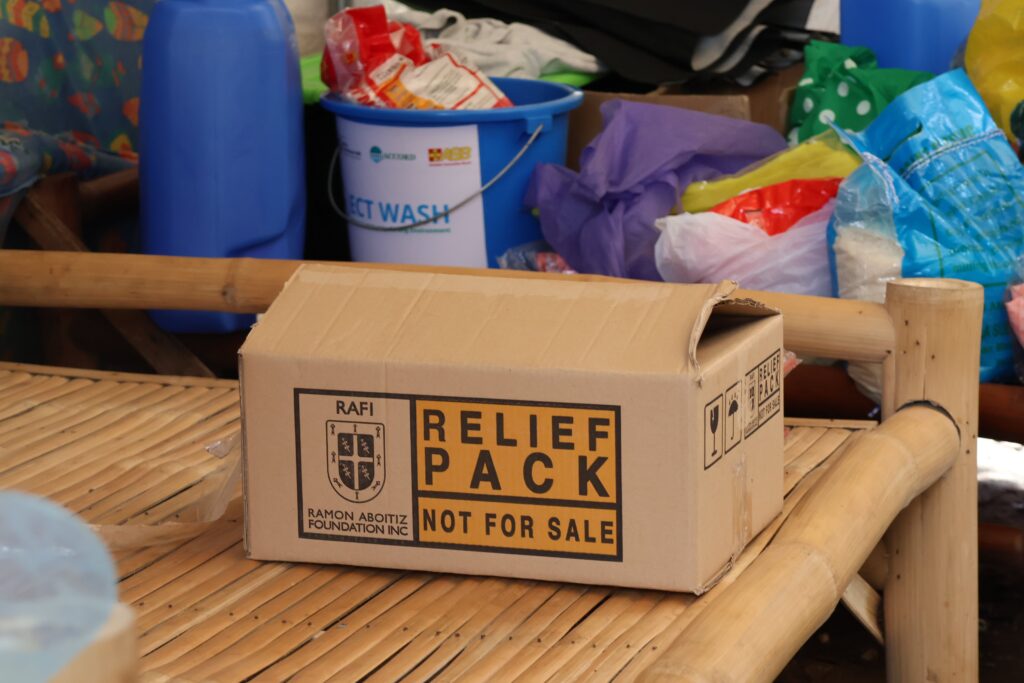
Among the recipients of the relief items are Nanay Miraflor of Bogo, who was trapped inside their house after a debris fell on her, and Nanay Marilyn from San Remigio, who continues to feel anxious as aftershocks continue to rattle their place. Their stories reflect the quiet strength of survivors and the vital role of providing help to communities as they begin to rise again and slowly heal.
BOGO CITY – A Hope for a House Rebuilt
Nanay Miraflor Belarmino, 42, vividly remembers the moment the earthquake struck their home in Barangay Polambato, Bogo City. She and her family were trapped inside, but she was the one who needed saving after a large piece of debris collapsed on top of her.
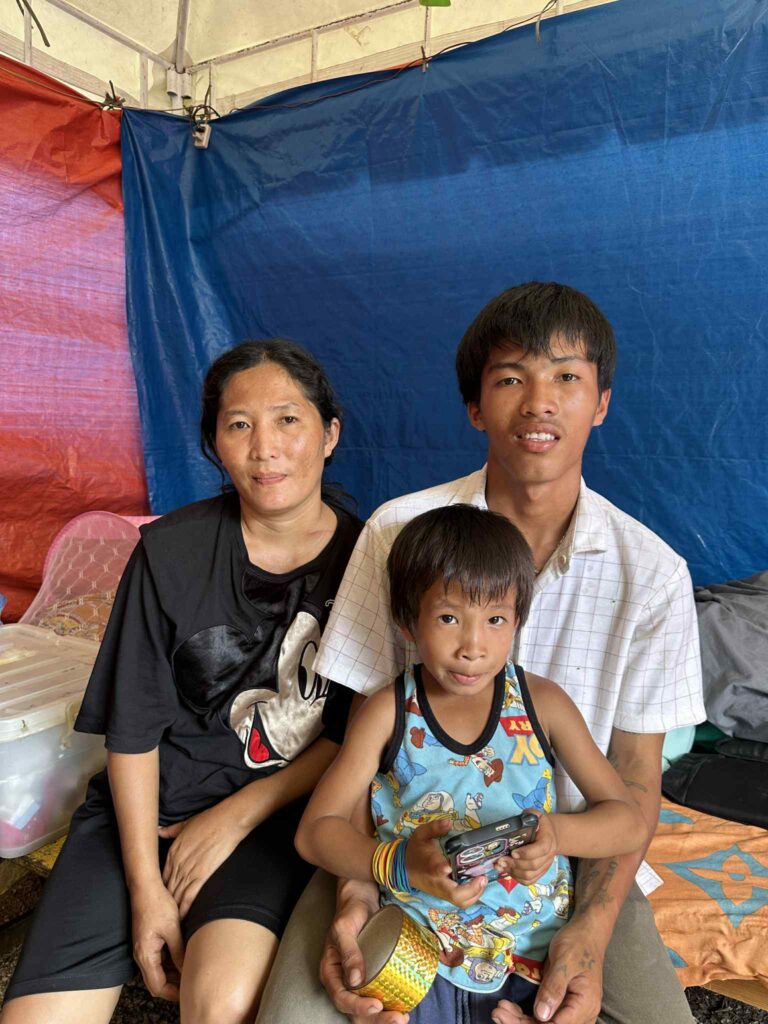
“It was my son who rescued me,” she recalled. “He used a hammer to break through while shouting, ‘Si Mama naa sa sulod!”
In those terrifying moments, Miraflor thought she wouldn’t survive. “Feeling gyud nako, Ma’am, mamatay na gyud ko. Dili na ko kaginhawa. Sige ko’g hilak tungod sa akong mga anak. Abi gyud nako patay na sila,” she said.
In her panic, she begged her children not to come for her. “Ayaw ko ninyo luwasa. Unaha inyong mga manghod,” she told them, thinking it would be safer for them to escape first.
Looking back now, she considers herself lucky to have survived. “Others didn’t make it,” she said, remembering those who were trapped and lost their lives when their houses collapsed. “Dili gyud lalim ang among naagian.”
But more than the fallen concrete walls of their home, it is the fear for her children’s safety that continues to haunt her.
“Mo-shagit pa ko kung naay linog, bisag gamay ra,” she admits. The trauma hasn’t left her and likely won’t for a long time.
For now, her family is living in tents, shielded from the heat during the day, but left vulnerable when it rains. Her wish is simple: to see their home rebuilt, not just theirs, but also those of their neighbors, especially those who were not as lucky.
SAN REMIGIO – A Psychosocial Rattle
In San Remigio, the earthquake didn’t just leave cracks in the ground, it left a deeper one in the hearts of many, including Marilyn Alburo. The trauma lingers, but Marilyn finds unexpected comfort in the smallest hands, those of her grandchildren.
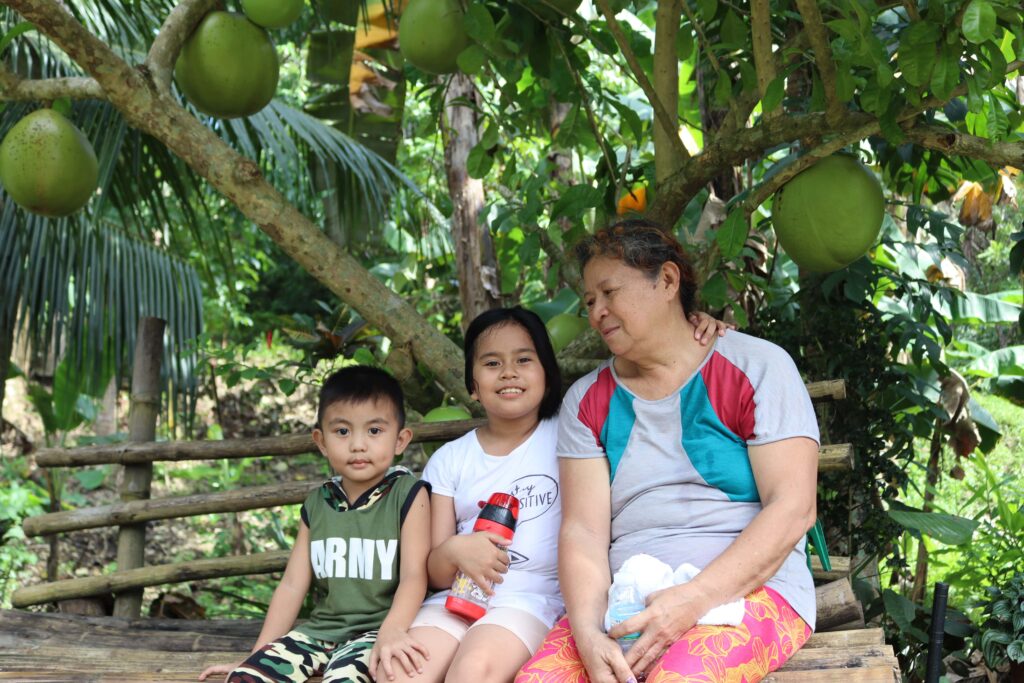
Roles have reversed. It’s no longer Marilyn who consoles them, but her 4-year-old grandson playfully saying, “Siging-siging,” a Cebuano expression often used to soothe frightened children. This time, the child is the one offering reassurance. Her granddaughter Athena also steps in, bringing her water whenever she senses Marilyn’s rising anxiety.
The fear is so strong that Marilyn refuses to enter their house, where visible cracks line the walls. Instead, the family has moved into a small one-story storage room nearby, using light materials, tarpaulins, and old curtains to cover open gaps.
Marilyn’s daughter, already close to exhausting her leave days from work, can’t bring herself to return. Her main concern isn’t just aftershocks, but her mother. Marilyn, on the other hand, tries to hide her panic attacks because she doesn’t want to be a burden.
The emotional toll is clear. Like many others in the community, Marilyn carries the invisible wounds of the earthquake, ones that will take more than just shelter or supplies to heal.
Dungan sa Pagbangon
RAFI continues to work and mobilize its teams for ongoing relief operations, reaching those like Nanay Nanay Miraflor and Nanay Marilyn, survivors who need all the support they can get in this difficult time.
Part of the Phase I operations is to provide relief to affected households to help them sustain their basic needs as they begin the journey back to normalcy.
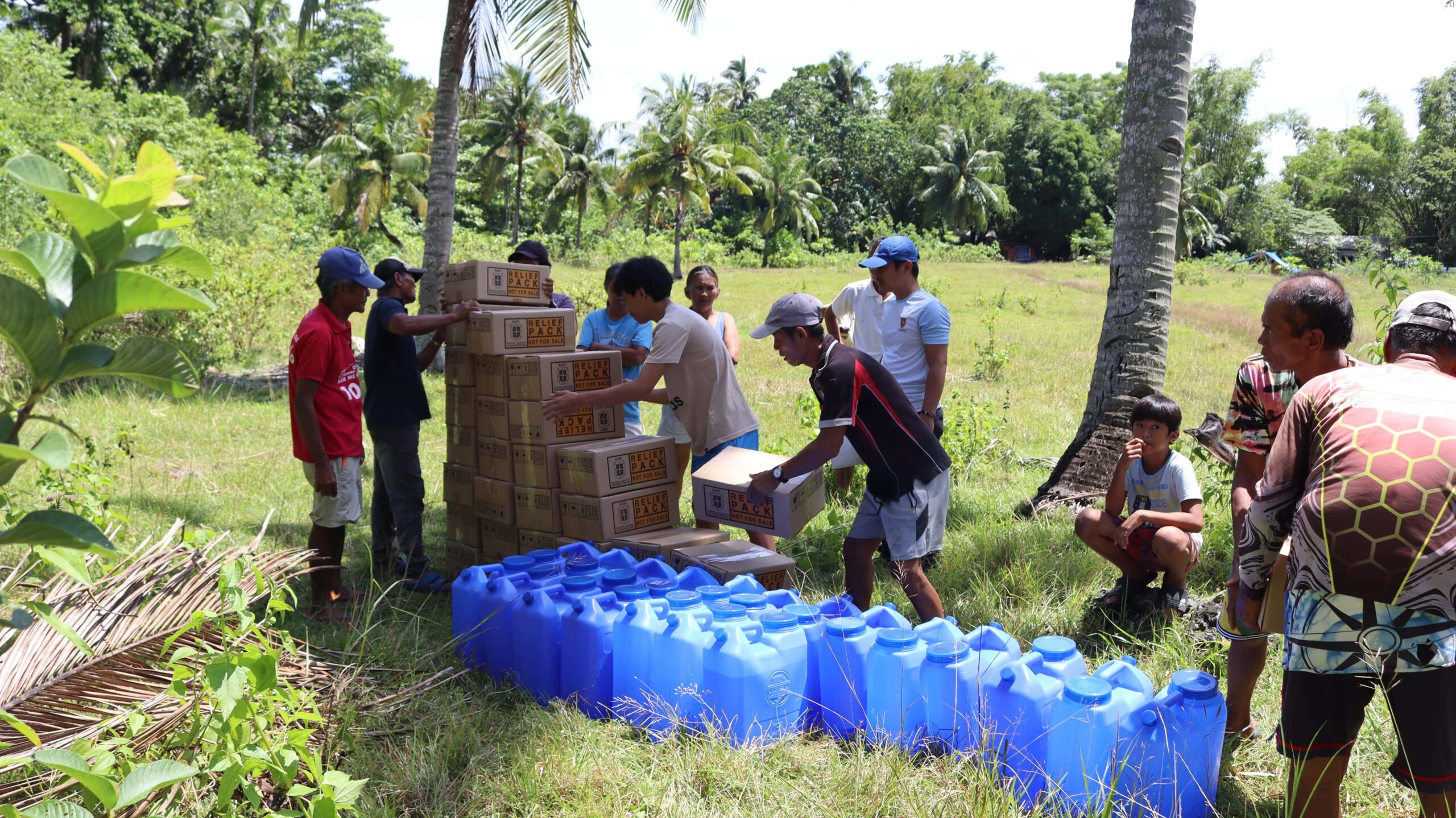
The aftermath of the earthquake has left deep uncertainty across Northern Cebu. From different towns, the stories of survivors reveal a common thread of trauma, fear and emotional strain. Aftershocks continue to rattle their communities, threatening not just physical safety but also their sense of security. These ongoing disruptions have affected both livelihood and mental well-being.
Communities in Northern Cebu still need our help. As we carry on, RAFI stands with the communities and continue to provide support where it is needed most.
You can be part of this mission. Join us in lifting our brothers and sisters in the North by donating through the channels below:
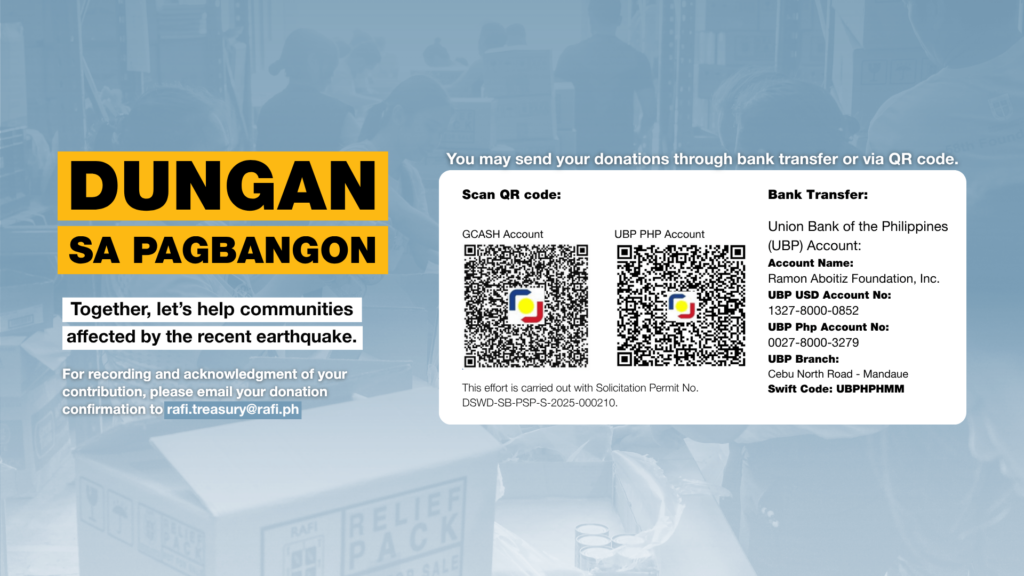
Your donations will go toward essential non-food items, including shelter kits, hygiene kits, sleeping kits, toddler kits, and newborn kits.
Together we move, together we rise. Dungan ta sa Pagbangon!
